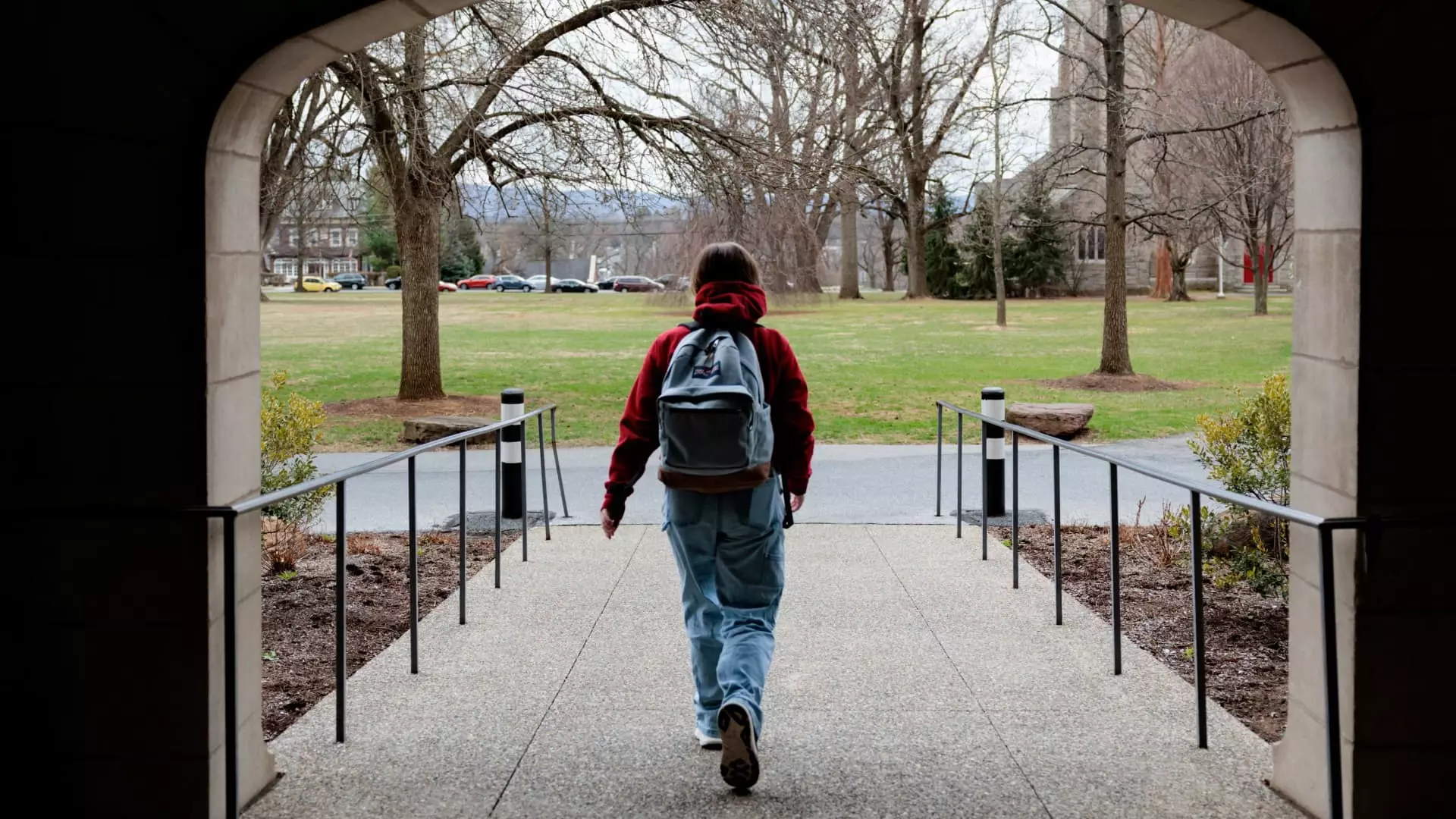Under the specter of constant political winds, the U.S. Department of Education has recently made a significant move: re-opening online applications for income-driven repayment (IDR) plans. Amid bipartisan squabbles and policies that regularly swing from one extreme to another, this decision is a bittersweet harmonizing note for the millions of federal student loan borrowers who have been grappling with debt. Given the economic burdens laid bare by the pandemic, the need for accessible financial solutions has never been more urgent. The recent closures of applications, spearheaded by the Trump administration in response to a court ruling concerning the Biden administration’s proposed bridge, were met with backlash that reflected how rapidly shifting policies can lead to financial ruin for borrowers.
The Pitfalls of Past Administration Decisions
The truncation of applications for IDR plans early this year was a perilous misstep. Dismantling access to these crucial programs, which primarily serve lower and middle-income borrowers, showcased an indifferent approach toward educational debt management. When policy decisions echo out of touch with the needs of ordinary Americans, we must question whether these leaders truly understand the gravity of student debt, a crisis that affects not merely individual borrowers but the economy at large. History has shown us that education should not come with a crippling price tag, yet here we are: witnessing an administration pulling applications for debt relief based on a broad misinterpretation of judicial mandates.
Examining the Legal and Social Ramifications
The American Federation of Teachers’ recent lawsuit against the Trump administration highlights a critical issue regarding the interpretation of legal rulings. Ignoring the specifics of a court’s decision may open the gates to more draconian policies that unfairly impact millions. This isn’t simply a legal dispute; it underscores the discrepancy between systemic policy failures and real human consequences. The tale of the student loan crisis isn’t just numbers on a spreadsheet; it’s about people struggling day-to-day, and any reluctance to prioritize their welfare speaks volumes about our national ethos.
Impact on Borrowers and Financial Strategies
With over 12 million individuals currently enrolled in IDR plans, this reopening shines a much-needed spotlight on financial accessibility. These plans, which limit monthly payments based on discretionary income and promise forgiveness after a set period, are not merely dusty programs in a government expanse—they represent genuine means for borrowers to regain control over their financial futures. As the economy continues to wobble, these lifelines become essential, allowing borrowers to shift their focus from mere survival to long-term planning. And let’s face it, in an era where economic volatility reigns supreme, having even a whisper of stability is no small feat.
A Call for Consistency and Compassion
What ultimately cries out for change is the need for consistency and compassion within our educational and financial policies. A mere reopening of applications will not solve the core issues surrounding student debt. If we want to have a productive discourse about education in this country, we must embrace actions that reflect understanding and genuine concern for our citizens’ financial health. Non-partisan solutions that focus on educational funding, interest rate reform, and broad debt cancellation must take precedence over politically charged maneuvers. In a society that professes equality of opportunity, it is time to prioritize the voices of those affected by these very policies, allowing compassion to guide our national education agenda.


Leave a Reply